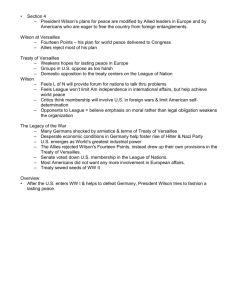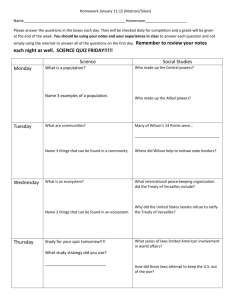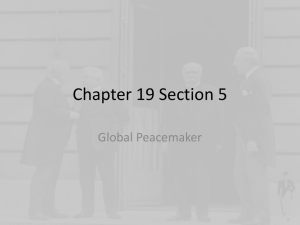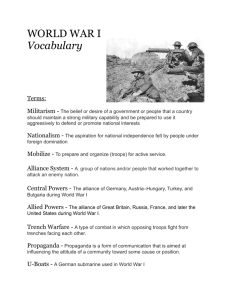The end of the war * and peace treaties
advertisement
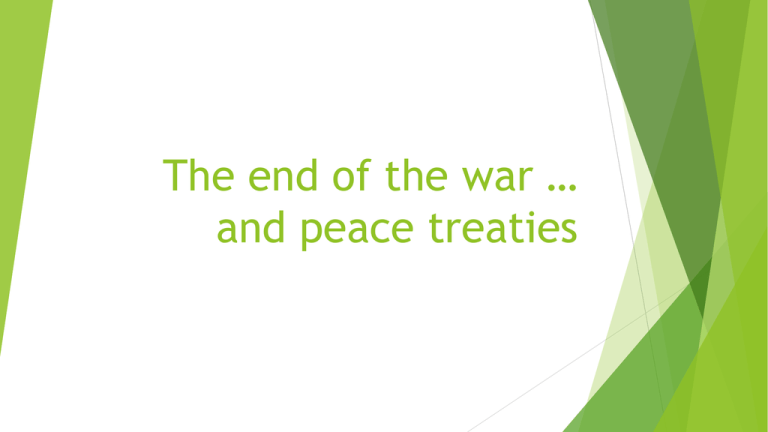
The end of the war … and peace treaties Wilson Fights for Peace Despite the hero’s welcome he received in Europe, Wilson’s plan for peace would be rejected by the Allies. Wilson’s plan was called the “Fourteen points” and included: No secret treaties Freedom of the Seas More free trade Reduction of arms Less colonialism A League of Nations to promote peace through collective security. Wilson’s 14 points in his own short hand Allies Reject Wilson’s Plan, Sign Treaty Hall of Mirrors The Big Four leaders, Wilson (U.S.), Clemenceau (France), Lloyd George (England), and Orlando (Italy), worked out the Treaty’s details Wilson conceded on most of his 14 points in return for the establishment of the League of Nations. On June 28, 1919, the Big Four and the leaders of the defeated nations gathered in the Hall of Mirrors at Versailles and signed the Treaty of Versailles. VIDEO - Segment of The Unfinished Nation: To End All Wars? - Armistice and Wilson's Fourteen Points Treaty Of Versailles The Treaty established nine new nations including Poland, Czechoslovakia, and Yugoslavia. It broke up the AustroHungarian Empire and the Ottoman Empire empires. It barred Germany from maintaining an army, required them to give Alsace-Lorraine back to France, and forced them to pay $33 billion in reparations to the Allies The Big Four met at Versailles The Weakness of the Treaty Germans felt the Versailles Treaty was unfair The harsh treatment of Germany prevented the Treaty from creating a lasting peace in Europe The Treaty humiliated the Germans by forcing them to admit sole responsibility for the war (War-Guilt Clause) Furthermore, Germany would never be able to pay $33 billion in reparations. Debate Over Treaty at Home In the United States, the Treaty was hotly debated especially the League of Nations. Conservative senators, headed by Henry Cabot Lodge, were suspicious of the Leagues’ joint economic and military commitments. Many wanted the U.S. Congress to maintain the right to declare war itself. Ultimately, Congress rejected U.S. involvement in the very League the U.S. President had created The U.S. never did join the league The Legacy of the War At home, the war strengthened both the military and the power of the government. The propaganda campaign provoked powerful fears in society. For many countries the war created political instability and violence that lasted for years 22 million dead, more than half civilians. An additional 20 million wounded. Russia established the first Communist state during the war Americans called World War I, “The War to end all Wars” --- however unresolved issues would eventually drag the U.S. into an even deadlier conflict. Effects of WWI… in the U.S. VIDEO: Segment of The Unfinished Nation: To End All Wars? The Red Scare and Social Unrest



